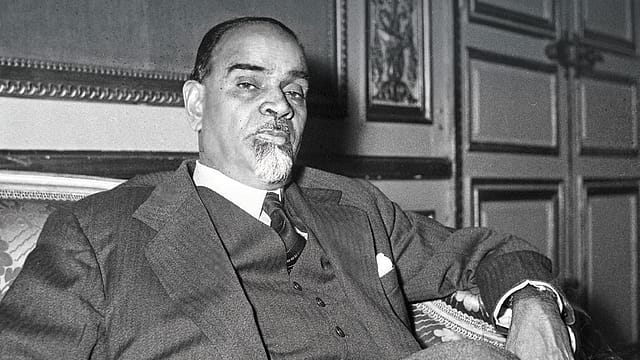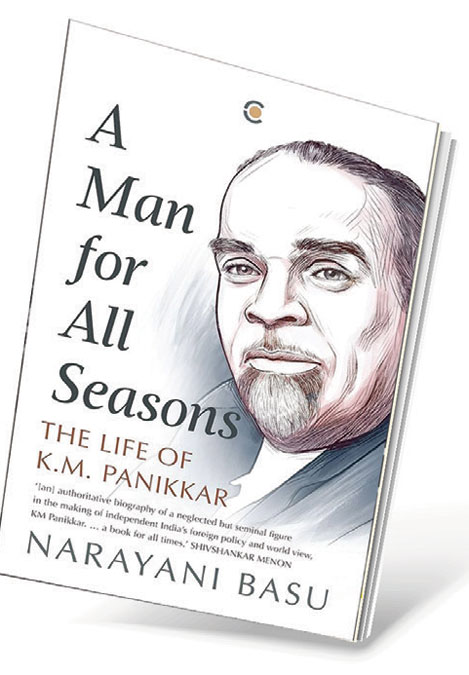A Man in Full


A GALAXY OF WRITERS and intellectuals so dominates the first half of the 20th century that you cannot but wonder at the dearth of their modern biographers. Sardar KM Panikkar is high on that list. The recent rekindling of interest in serious biography in India has meant that this gap around Panikkar has been substantively addressed by Narayani Basu’s A Man for All Seasons.
Why did we have to wait so long? Perhaps his multifaceted interests and numerous roles may have deterred many biographers. His accomplishments are noteworthy and varied. As a writer of history, contemporary geopolitics, India’s foreign policy and defence, a bibliography of his published books extends to over two closely printed pages and articles possibly twice as much. As a civil servant-cum-courtier in the princely states of Bhopal, Bikaner and Kashmir, Panikkar, born in 1895, was a close observer and frequent participant in many significant developments with a bearing on the development of Indian federalism. As India’s first ambassador to China and thereafter to Egypt and France post-Independence, he had a ringside perch at a critical stage of world history—the first flush of the Cold War and decolonisation. Alongside, he was a gifted writer in Malayalam and in the last decade of his life he was a member of the States Reorganisation Commission and also a parliamentarian.
Narayani Basu has ably brought out all these varied facets in a long and leisurely treatment, which is both fair-minded and analytically robust. This is an immersive treatment of Panikkar’s numerous interests and his intellectual and political inclinations alongside an engaging and informative insight into his historical context. It is a strength of the book that the author endeavours to give a full sense of the man: “a roving spirit, strong opinion and forensic intelligence… You might disagree with Panikkar. But you could not ignore him”.
AIming High
20 Feb 2026 - Vol 04 | Issue 59
India joins the Artificial Intelligence revolution with gusto
From the 1970s even as memories of Panikkar faded, two aspects of his life and works remained prominent—at least in terms of intellectual discourse.
The first was Panikkar’s standing as a historian—not so much as an academic but the public persona commenting on the great issues of his time with a sense of history. His 1953 book Asia and Western Dominance certainly consolidated this reputation. The book quickly became and has remained a classic as equally as much of a manifesto of an age of Asian decolonisation. This work along with others on the Indian ocean and sea power provided the ingredients of what would become the foundations for a maritime consciousness in a largely land borders obsessed strategic community in India.
The second aspect was less favourable to Panikkar’s contemporary and posthumous reputation, and this concerned his role as Indian ambassador to China. Sardar Patel had noted in 1950 that the Chinese “managed to instill in our Ambassador a false sense of confidence”. The roots of the subsequent breakdown in India-China relations are often traced to the period of Panikkar’s tenure. In many ways he became for Indian diplomacy a kind of metaphor for the ambassador who develops ‘localitis’, or as Sardar Patel also put it: Panikkar was “at great pains to find an explanation or justification for Chinese policy and actions”. Basu unveils the different aspects of this imbroglio which is based on some amount of truth but also derives from the benefit of hindsight on judgement calls that went badly wrong.
This is a meaty and comprehensive treatment of a towering personality of modern India. It merits a close and leisurely read.
